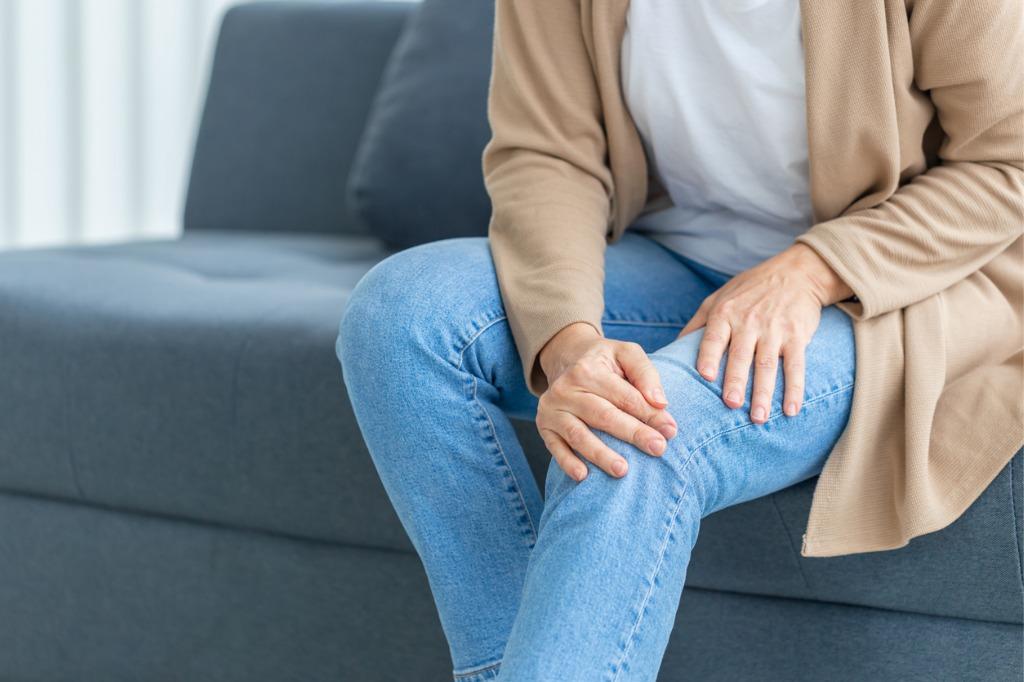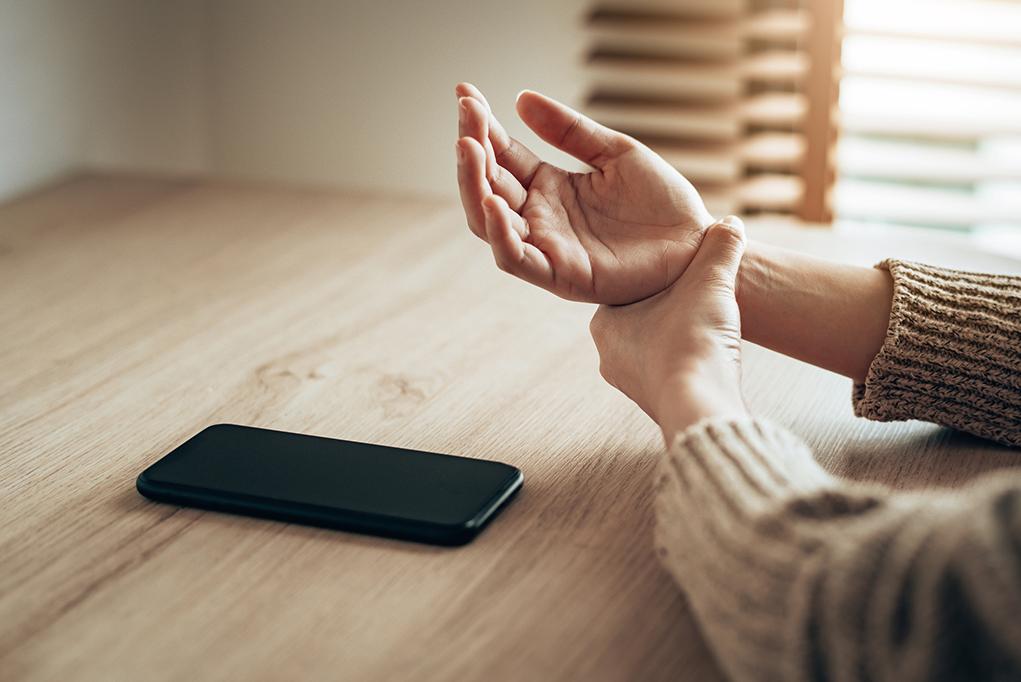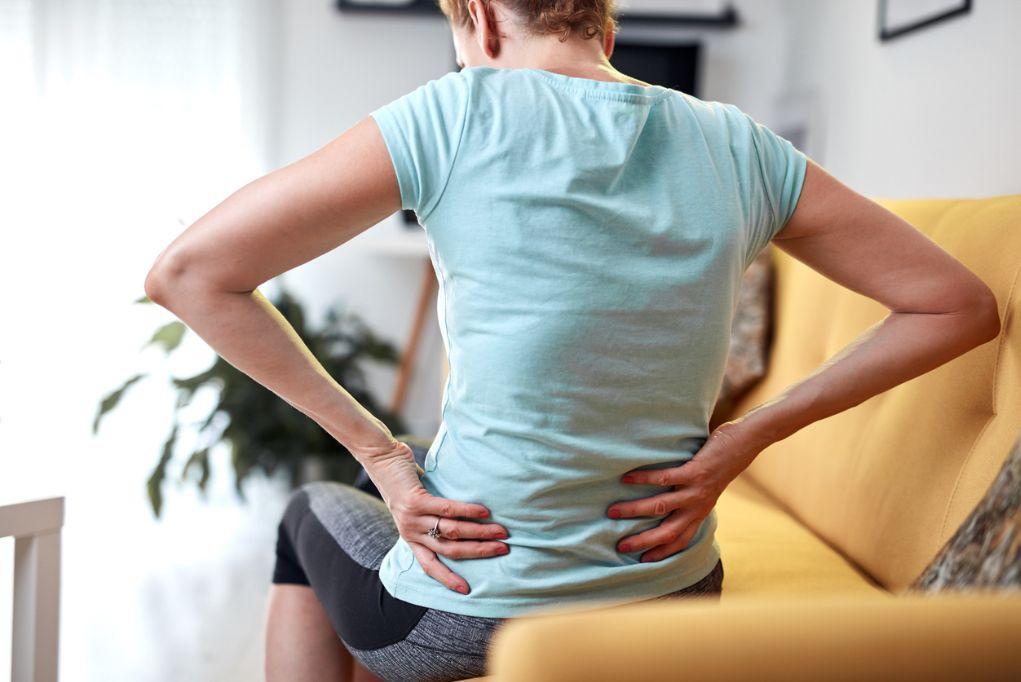5 Causes of Hip Pain When Walking
Your hips are essential to your body’s movement, supporting your upper body and helping you to walk, run, and perform daily activities. While your hips are designed to withstand significant stress and strain, they are still susceptible to injury and pain. Hip pain when walking is a common complaint and can be caused by various factors. At Motion Orthopaedics, we are dedicated to educating and treating individuals with hip pain to help them get back to living an active and pain-free life.

Common Causes of Hip Pain When Walking
If you’re experiencing hip pain when walking, understanding the potential causes is the first step towards finding relief. Hip pain can range from mild discomfort to severe pain that hinders mobility and daily activities. Recognizing the specific nature of your hip pain when walking can help pinpoint the underlying issue. Below, we explore some of the most common causes of hip pain when walking so you can better understand your symptoms and seek the appropriate treatment.
1. Arthritis
Arthritis is one of the leading causes of hip pain when walking. The hip joint, susceptible to osteoarthritis, can degrade over time or due to stress, causing inflammation and pain. Rheumatoid arthritis is another type of arthritis that can affect the hip joint and cause pain when walking. Common arthritis symptoms include stiffness, swelling, and a limited range of motion in the hip joint, especially in the morning or after sitting for long periods.
2. Bursitis
Hip bursitis occurs when the bursae, small fluid-filled sacs that cushion the hip joint, become inflamed. This condition is common in individuals who engage in repetitive activities that strain the hips. Bursitis can cause pain on the outside of the hip that worsens with movement, especially when walking or climbing stairs. Symptoms of bursitis may also include swelling, tenderness, and warmth in the affected area.
3. Trauma and Overuse Injuries
Hip pain when walking may also result from acute injuries or the overuse of hip muscles and tendons. It’s important for individuals, especially athletes, to recognize the symptoms early to prevent further damage. If you experience a sudden sharp pain in your hip when walking, it may be due to an injury, such as a strain or tear of the muscles and tendons surrounding the hip joint. Overuse injuries, on the other hand, can develop over time from repetitive stress and are commonly seen in runners and dancers.
4. Fractures and Sprains
Fractures and sprains may also cause hip pain when walking. These injuries are usually the result of trauma, such as a fall or impact on the hip. In older individuals, osteoporosis can make the bones more susceptible to fractures. Symptoms of a hip fracture or sprain may include severe pain, swelling, bruising, and difficulty bearing weight on the affected leg. If you suspect a fracture or sprain, it’s essential to seek medical attention immediately.
5. Referred Pain from Back Issues
Sometimes, hip pain when walking isn’t directly related to the hip itself but rather results from issues in the lower back. Conditions like sciatica or lumbar spinal stenosis can cause referred pain to radiate from the back into the hip and legs. This type of pain can complicate diagnosis and treatment, emphasizing the importance of a comprehensive evaluation.
Managing Hip Pain
Managing hip pain when walking involves a combination of strategies to reduce pain, improve mobility, and prevent further injury. Understanding the cause of your hip pain and implementing appropriate treatment methods can help alleviate symptoms and enhance your quality of life. Below are some effective treatment and management strategies for hip pain:
- Rest and Activity Modification: Allow your hip to rest and avoid activities that exacerbate the pain. Gradually reintroduce low-impact activities like swimming or cycling to maintain mobility without overstraining the hip joint.
- Physical Therapy: Engage in targeted exercises and stretches under the guidance of a physical therapist to strengthen the muscles around the hip and improve flexibility and range of motion.
- Medications: Use over-the-counter pain relievers, such as ibuprofen or acetaminophen, to manage pain and reduce inflammation. Prescription medications may be necessary for more severe cases.
- Ice and Heat Therapy: Apply ice packs to reduce acute swelling and pain, or use heat therapy to relax tense muscles and alleviate chronic discomfort.
- Weight Management: Maintain a healthy weight to reduce stress on the hip joint and prevent further deterioration.
- Supportive Devices: Utilize supportive devices, such as canes, crutches, or orthotic inserts, to aid in walking and reduce pressure on the hip.
- Injections: Consider corticosteroid injections for significant pain relief and inflammation reduction in the hip joint.
- Surgical Intervention: For severe cases that do not respond to conservative treatments, surgical options such as hip arthroscopy or hip replacement may be necessary. Consult with an orthopedic surgeon to explore these options.
Treat Your Hip Pain When Walking With Motion Orthopaedics
Dr. Scott Zehnder and Dr. David King at Motion Orthopaedics are renowned for their expertise in diagnosing and treating hip pain and joint disorders. Their commitment to patient care is backed by personalized treatment plans and the use of advanced medical techniques, ensuring the best possible outcomes for those suffering from hip-related issues. To take the first step towards relieving your hip pain, schedule an appointment with Dr. Zehnder or Dr. King today.




